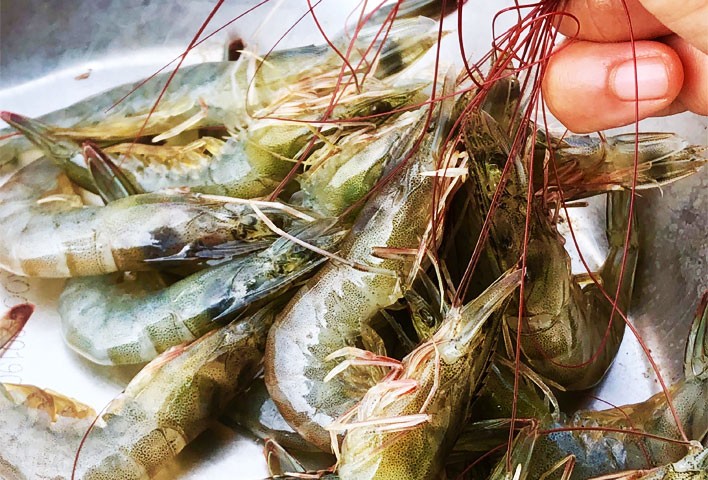Introduction
Shrimp Farming has witnessed tremendous growth in recent years, becoming a vital sector in the global seafood industry. As the demand for high-quality shrimp continues to rise, farmers are faced with challenges such as disease outbreaks, water quality issues, and the need for sustainable practices. One promising solution gaining attention is the use of probiotics in shrimp farming.
Challenges in Shrimp farming
Shrimp farming presents numerous challenges due to constant exposure to pathogen pressures, environmental fluctuations (such as temperature, salinity, dissolved oxygen, etc.), and various production stressors (including stocking density and handling). However, the most formidable obstacle for producers is disease, which can result in unpredictable harvests with mortality rates ranging from 30% to 80%. This unpredictability significantly heightens the risk of shrimp farming and incurs substantial financial costs, estimated to cost the shrimp industry billions of US dollars annually. Despite extensive research, finding a singular solution to address these intricate challenges remains elusive and unrealistic. Therefore, a comprehensive, multifactorial approach is imperative throughout the value and production chain, necessitating collaboration among various stakeholders.
Understanding Probiotics
Probiotics, often referred to as “good bacteria,” are living microorganisms that confer health benefits to their host organisms when administered in adequate amounts. In shrimp aquaculture, the most commonly used probiotics include bacteria, yeast, and other microorganisms that positively influence the gut microbiota of shrimp.
The Gut Microbiota and Shrimp Health
The gastrointestinal tract of shrimp plays a crucial role in digestion, nutrient absorption, and overall health. Disruptions in the balance of the gut microbiota can lead to various issues, including disease susceptibility and poor growth rates. Probiotics work by enhancing the beneficial bacteria in the shrimp gut, thereby promoting a healthier microbial community.
Benefits of Probiotics in Shrimp Aquaculture
Disease Prevention: Probiotics have shown remarkable potential in preventing and controlling diseases in shrimp. They compete with harmful pathogens for resources, produce antimicrobial compounds, and stimulate the shrimp’s immune system.
Improved Nutrient Digestion: Certain probiotic strains assist in the breakdown of complex nutrients, making them more accessible to the shrimp. This results in improved feed utilization and better growth rates.
Water Quality Management: Probiotics contribute to the maintenance of water quality by breaking down organic matter and reducing the accumulation of harmful compounds such as ammonia and nitrites. This is particularly crucial in densely populated shrimp ponds.
Stress Reduction: Shrimp often face stressors such as changes in environmental conditions or handling during farming operations. Probiotics help in mitigating stress by promoting a balanced gut microbiota, which in turn supports the shrimp’s resilience.
Application of Probiotics in Shrimp Farming
Probiotics can be administered to shrimp through various methods:
Direct Addition to Feed: Probiotics can be incorporated into shrimp feed, ensuring a consistent and controlled dosage. This method is convenient for large-scale farming operations.
Water Probiotics: Some farmers prefer adding probiotics directly to the pond water. This allows for a more widespread distribution and can positively impact the entire pond ecosystem.
Post-Larval Treatment: Treating shrimp post-larvae with probiotics during the early stages of development establishes a beneficial microbial community in the gut, laying the foundation for a healthy life cycle.
Challenges and Considerations
While the use of probiotics in shrimp aquaculture holds tremendous potential, it is essential to address challenges such as:
Selection of Strains: Identifying the most effective probiotic strains for a specific shrimp species and environmental conditions is crucial.
Dosage and Timing: Determining the optimal dosage and timing of probiotic administration requires careful consideration to achieve maximum benefits.
Environmental Factors: Factors like water temperature, pH, and salinity can influence the effectiveness of probiotics, making it necessary to tailor applications to specific conditions.
Probiotic solution for shrimp farming from Sanzyme Biologics
Sanzyme Biologics has positioned itself at the forefront of innovation by offering a specialized probiotic solution for aquaculture designed to tackle the unique challenges faced by shrimp farmers. Their approach is holistic, targeting the host, pathogen, and environment to fortify shrimp health and resilience.
Host Support: Sanzyme’s probiotics are formulated to enhance the shrimp’s immune system and digestive processes. By fostering a balanced gut microbiota, these probiotics contribute to improved nutrient absorption and overall health for shrimps.
Pathogen Control: The probiotic solution from Sanzyme Biologics includes strains that compete with and inhibit the growth of harmful pathogens. This proactive approach helps prevent disease outbreaks and reduces mortality rates.
Environmental Management: Recognizing the impact of environmental factors, Sanzyme’s probiotics for aquaculture aid in maintaining optimal conditions within shrimp ponds. This includes mitigating the effects of fluctuating temperatures, salinity levels, and other stressors.
While the financial toll of high mortality rates in shrimp farming is difficult to quantify precisely, Sanzyme Biologics’ probiotic solution aims to significantly reduce these losses. By offering a more predictable and consistent harvest, shrimp farmers can experience increased profitability and sustainability, reinforcing the economic viability of the entire industry.
About Sanzyme Biologics
Sanzyme Biologics is a pioneer in fermentation technology with 50 years of legacy in the area of probiotics. Founded as Uni-Sankyo in the year 1969, it was the first company to manufacture and sell probiotics & enzymes in India and is today a market leader with presence in over 40 countries across the globe, including key markets such as US, Europe, Japan, South Korea, Australia, New Zealand, China and Taiwan.
Sanzyme Biologics manufactures proprietary probiotic strains, probiotic blends, enzymes and nutritional ingredients for humans, pets and farm animals in its state-of-the-art manufacturing facility in Hyderabad, India with over fermentation capacity of 350,000 L (one of the highest in the world). Sanzyme Biologics is certified FAMI-QS, NON-GMO, NSF, HALAL, KOSHER & ISO Producing a wide range of spore forming, shelf and process stable probiotic strains. In Animal Health -Sanzyme Biologics exports AMR Gene Free Probiotic strains of Bacillus subtilis (SAN 144BS), Bacillus coagulans (SAN 135BC), Bacillus licheniformis (SAN 136BL) & Saccharomyces boulardii (SAN 158SB). SANZYME BIOLOGICS also export other Probiotic Animal Health Formulations for Poultry, Aqua, Swine, Dairy, Sheep, Companion Animals & Others

